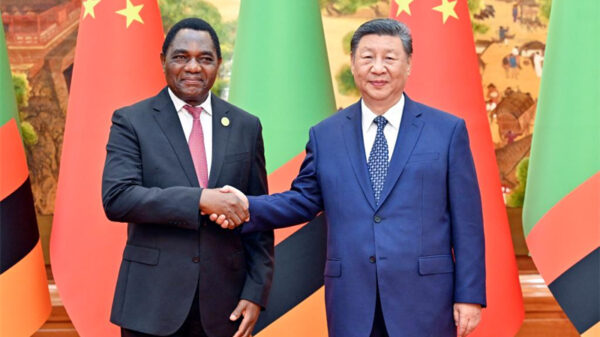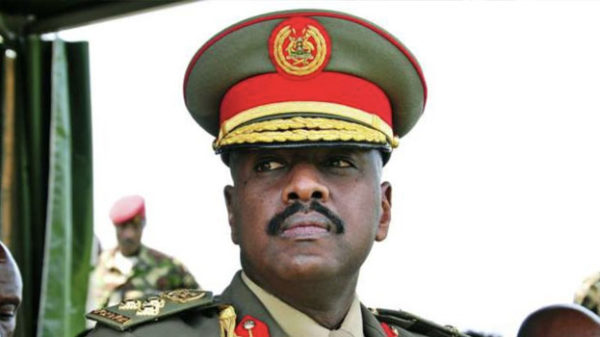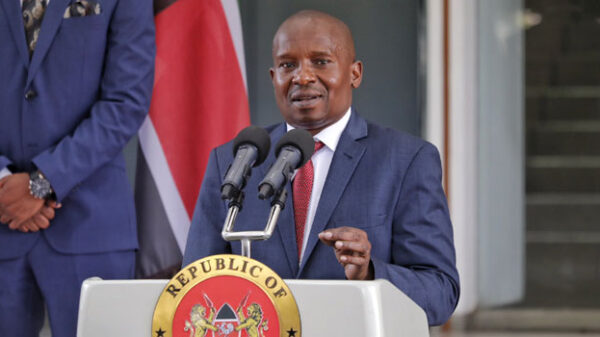Local manufacturers led by Kenya Association of Manufacturers last week went on a trade mission to Tanzania, following the meeting between President Uhuru Kenyatta and Tanzania’s Samia Suluhu two months ago.
The mission organized in partnership with the Confederation of Tanzania Industries yielded promise, hope and a positive turning point for the two countries.
One thing stood out; trade relations between the two countries can flourish given sustained political goodwill and mutual understanding between businesses.
Whilst Kenya and Tanzania have for years shared strong trade relations, non-tariff barriers, high cost of production and cheap imports from outside the East Africa Community (EAC) region have impacted trade between the two countries.
Statistics indicate that Kenya’s exports to Tanzania declined from USD 343.6 million in 2015 to USD 329.5 million in 2019, whilst imports from Tanzania increased from USD 172.6 million in 2015 to USD 269.7 million in 2019. On the other hand, Tanzania’s exports to Kenya grew from USD 126.2 million in 2016 to USD 258.2 million in 2020, while her exports to the world grew from USD 4.4 billion in 2016 to USD 5.2 billion in 2020.
Looking at the nominal values of our trade statistics, there is plenty of room for improvement in the total volume of trade between the two countries.
The conversations held in Dar es Salaam proved pivotal for both business communities. The warm reception and progressive deliberations were an indication that we have a common goal for prosperity in mind. In fact, the talks widened to focus on how, together, we can leverage Africa Continental Free Trade Area (AfCFTA) for the economic development of East Africa.
The business community highlighted three main areas to deepen trade between the two countries, and EAC at large.
First, we must drive mutual trade and investments through foreign investments into Kenya and Tanzania from investors from both countries. Investments such as setting up of new industries, technological upgrades and skills development among others, drive productivity and competitiveness and consequently, accelerate industrial development. Predictability in policy development, macroeconomic stability and a fit-for-purpose public service are essential in not only influencing economic growth but also investor’s participation in manufacturing ventures and price competitiveness of manufactured goods.
Closely linked to this is enhanced market linkages. It is essential that both government and business players hold business-to-business forums to exchange ideas for investments and market opportunities. COVID-19 has re-emphasized the importance of intra-regional trade and investment following the disruption of the global supply chains. This calls on us to develop our value chains to ensure that we are self-sufficient, as a region, going forward.
Second, addressing non-tariff barriers (NTBs) is paramount. NTBs have over time made trade between the two countries difficult and, in some instances, led to loss of market for certain products. An example of these NTBs is the discriminatory treatment of products. Such barriers arise when non-trade measures meant to protect consumers and ensure adherence to product standards are used as an obstacle to trade. Whilst there have been numerous discussions to address these NTBs, very little success has been achieved.
Third, we must discourage imports of finished goods by finalizing the review of the EAC Common External Tariff (CET). This will encourage manufacturing whilst protecting local industries from imported finished goods. The CET is an import rate adopted and applied by countries within a common market. This tariff is ideally imposed on products imported from non-member countries, with the intention of promoting industrialization in the common region, enhancing the economic development of member states, and liberalizing regional trade.
Whilst consensus has been achieved on the lower tariff bands of CET, it is yet to be achieved for the upper tariff band. The Association holds that Kenya should adopt 35% as the 4th tariff band, to support the industrialization agenda. This will allow reasonable protection of the sector to incentivize value addition and correct the anomaly in the current CET, where inputs attract the same rate as the finished product.
In the spirit of togetherness, we look forward to quickly establishing the EAC as a trade, investment and industrialization hub, more so, as we open our borders to the continent through AfCFTA. This is the one true path towards regional integration, aiding development, increasing prosperity and enhancing productivity.
The writer is the CEO of Kenya Association of Manufacturers and Global Compact Network Kenya Board Chair. She can be reached at ceo@kam.co.ke

















































